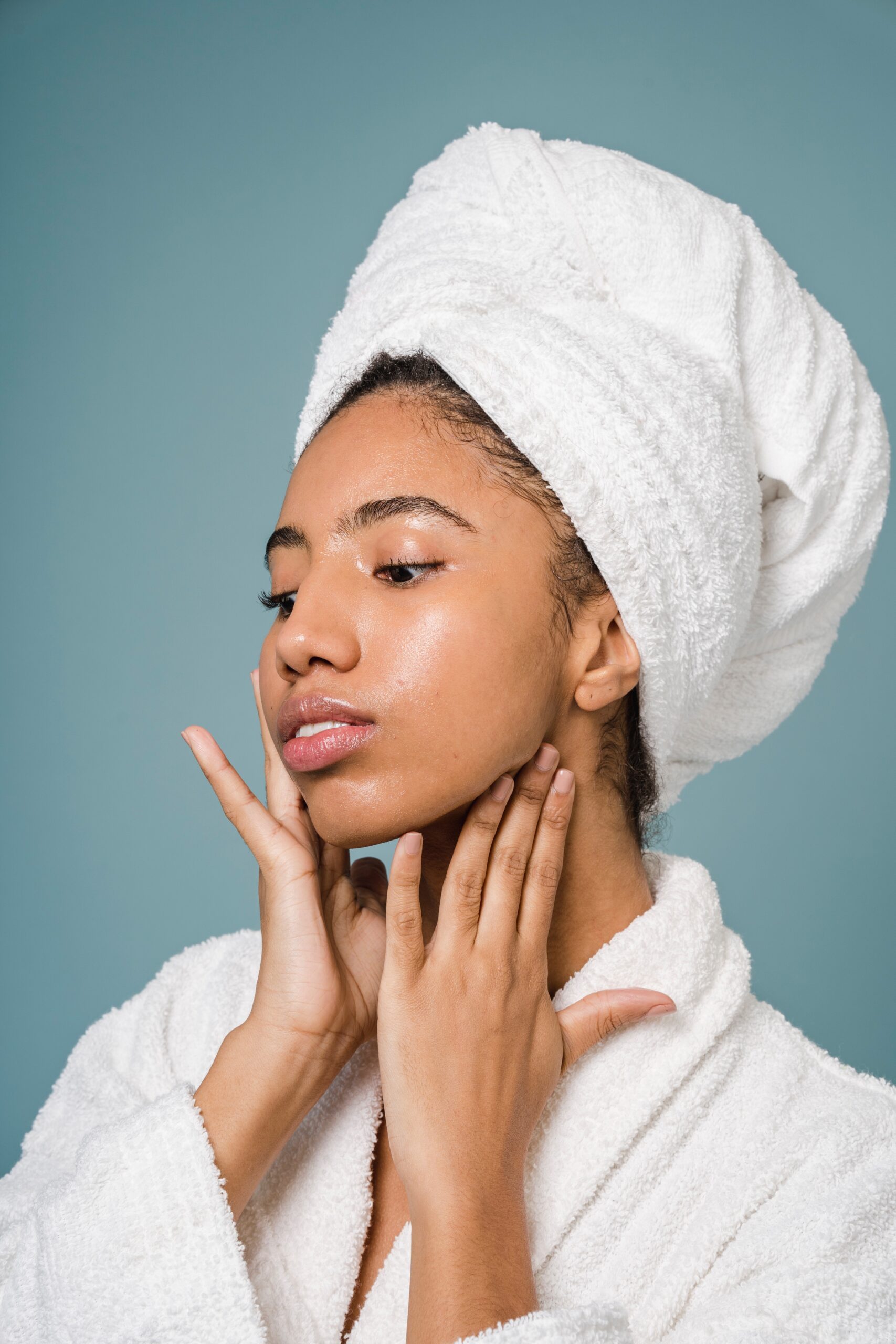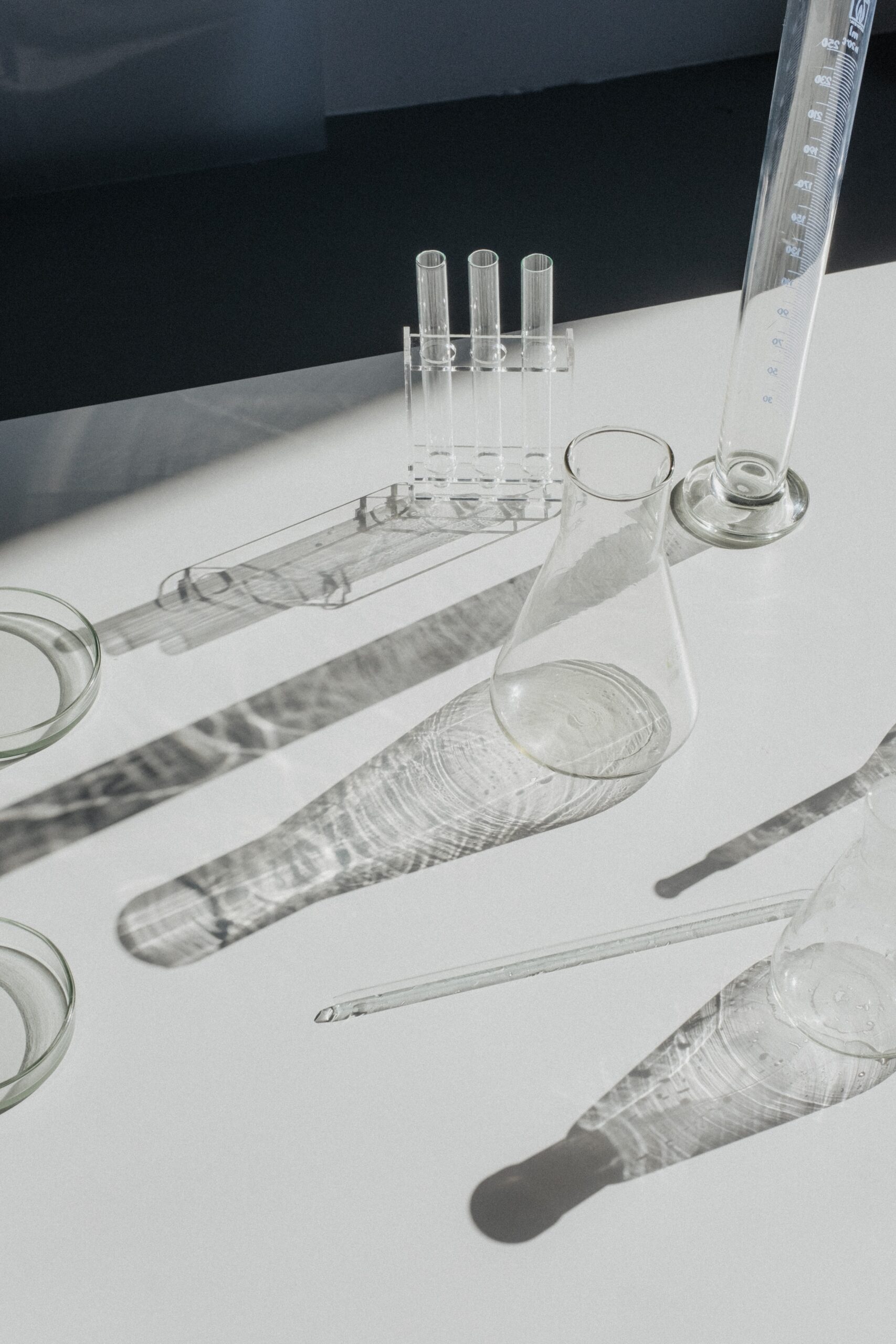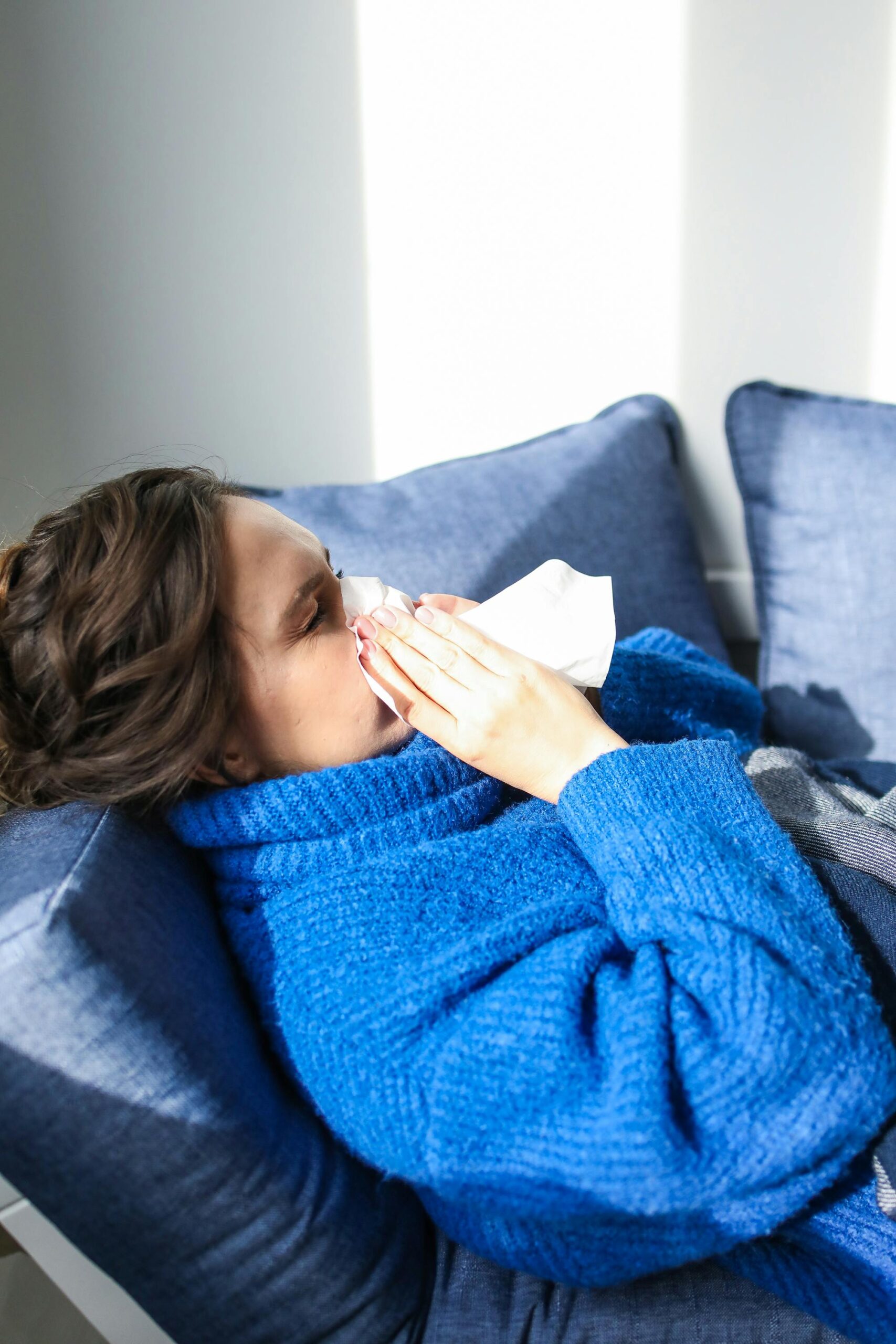Headaches are more than just a minor inconvenience; they can be a signal from your body that something is amiss. If you’re wondering, “Why does my head hurt everyday?” or experiencing a sudden daily headache, it’s important to understand the potential causes and natural ways to find relief.
This article will explore common triggers of chronic headaches and offer practical, drug-free solutions to help you address and prevent them. By identifying and managing the underlying factors, you can stop your head from hurting all the time and improve your overall well-being.
What’s the difference between a headache and a migraine?
Headaches and migraines are often used interchangeably, but they represent distinct experiences. Headaches typically involve a dull, steady pain affecting both sides of the head, often caused by tension, dehydration, or stress. On the other hand, migraines are characterized by intense, throbbing pain, usually localized to one side of the head, accompanied by additional symptoms such as nausea, sensitivity to light and sound, and visual disturbances.
While headaches are more common, migraines tend to be more debilitating and may require specific treatments tailored to address their complex neurological origins. Although this article will focus on underlying causes and solutions for headaches, many of these principles are effective for migraines, too!
What causes headaches?
There are a lot of potential underlying causes of headaches and like most things, they vary between individuals. What triggers a headache in one person may not affect another. Understanding the underlying causes of your headaches is crucial for addressing them effectively and achieving lasting relief without relying on medication.
Some of the most common factors contributing to headaches include:
Poor Sleep
Both in quality or quantity, disrupts the delicate balance of brain chemicals, heightening pain sensitivity and contributing to headaches.
Dehydration
Reduces blood volume and oxygen delivery to the brain, triggering pain pathways and inflammation that exacerbate headaches.
Stress
Causes muscle tension, altering neurotransmitter levels, and triggering inflammatory responses, leading to increased headache susceptibility and severity.
Low Blood Sugar
Levels can precipitate headaches by depriving the brain of its primary energy source (glucose), leading to altered brain function, neurotransmitter imbalances, and increased pain perception.
Muscle Tension and Poor Posture
Can strain the neck and shoulder muscles, resulting in referred pain to the head and increased pressure on the nerves and blood vessels.
Caffeine Withdrawal
Can affect blood vessels and neurotransmitter levels, causing dilation and constriction patterns that lead to increased pain sensitivity and the onset of withdrawal symptoms, including headaches.
Food or Environmental Allergies
Can trigger headaches through immune system activation and inflammatory responses, leading to the release of histamine and other chemicals that irritate nerve endings and blood vessels in the head.
Exercise
Can paradoxically trigger headaches in some people due to factors such as dehydration, muscle tension, and changes in blood flow and pressure. Strenuous physical activity can release stress hormones and neurotransmitters that can contribute to headache development, especially if you’re not adequately prepared or conditioned for the activity.
Magnesium Deficiency
Can contribute to headaches by affecting neurotransmitter function, particularly serotonin, blood vessel tone, muscle tension, and inflammatory pathways in the brain.
Mast Cell Activation Syndrome (MCAS)
Involves the inappropriate release of histamine and other inflammatory mediators from mast cells, potentially leading to a wide range of symptoms, including headaches. Histamine release can trigger vasodilation, nerve sensitization, and inflammation in the brain, contributing to headaches in people with MCAS.
Certain Foods
Act as triggers for headaches in susceptible people. Wheat, oranges, eggs, tea and coffee, chocolate, milk, beef, corn, cane sugar, yeast, mushrooms, and peas are common culprits. Additionally, tyramine-containing foods such as matured cheeses, cured meats, non-fresh fish, overripe fruits, fermented vegetables, and fermented soy products may contribute to headaches in those sensitive to this compound. Note that different people have different triggers and just because this list of foods triggers some people, doesn’t mean they trigger you! There may be foods not listed that have a more significant effect on your headaches, and those are the ones to be mindful of.
Hormonal Imbalances
Can significantly impact headaches, particularly in women. Fluctuations in estrogen levels before and during menstrual cycles, pregnancy, or menopause, can trigger migraines by affecting the brain’s neurotransmitters and blood vessels. Imbalances in other hormones like progesterone, cortisol, and thyroid hormones can influence headache frequency and severity by altering pain sensitivity, the stress response, and overall neurological function.
Stealth Infections
Like mold toxicity, heavy metals, and Lyme disease can be hidden causes of chronic headaches. Mold exposure can lead to chronic inflammatory response syndrome, causing neurological inflammation, while heavy metals like mercury and lead disrupt brain function. Lyme disease, often undiagnosed, can invade the nervous system and trigger severe headaches.
How to Tell What’s Causing Your Headache
Now that you know some of the common causes of headaches, let’s explore various ways to uncover the root cause of your chronic headaches.
The location of a headache can provide some insight into its underlying cause. For example, tension headaches often present as band-like pressure around the forehead, cluster headaches cause severe pain around one eye, and migraines usually involve throbbing pain on one side of the head. Sinus headaches tend to affect the entire face, including behind the eyes, cheekbones, forehead, and bridge of the nose. Dehydration headaches may affect the entire head, or in one location like the back, front, or side.
People who experience chronic headaches will likely notice patterns between the location of discomfort and the underlying cause. If a pattern between location and cause doesn’t emerge, a process of working backwards, considering all the possible factors can help you pinpoint the underlying cause or causes of your headaches.
Next time you experience a headache, go through these questions to begin understanding your personal triggers.
- Have you had enough (or any) water today?
- Have you over or under caffeinated?
- Did you get good sleep?
- Did you drink alcohol or use nicotine recently?
- Have you eaten enough, well-rounded meals today?
- Have you moved your body too little? Too much?
- Are you feeling stressed?
Your answer to these questions will give you some clues as to where to focus your attention.
Unfortunately, the underlying cause of some recurrent headaches is deeper than lifestyle and dietary choices. If you’ve already adopted the strategies discussed in this article and are still struggling with headaches, testing can help us determine what’s going on internally.
Functional Testing for Recurrent Headaches
Microbiome Testing
A GI Map provides information about your gut microbiome, identifying imbalances in bacteria, viruses, and other pathogens that contribute to digestive issues like intestinal permeability, aka “leaky gut”. Leaky gut occurs when the intestinal lining becomes more permeable than normal and allows bacteria and toxins to enter the bloodstream, triggering inflammation and an immune response that may contribute to headaches.
Allergy Testing
Food allergies can be a factor contributing to chronic headaches, and testing can be a helpful tool for determining their effect on you. Undiagnosed Celiac disease is a common cause of chronic headaches and can be assessed with a blood test, while other food allergies can be assessed with IgE Food Allergy blood tests or a Skin Prick Test.
Alternatively, a temporary elimination and reintroduction diet can help you get clear on which foods are triggering your headaches. To do so, eliminate potentially triggering foods for at least 10 days, and then systematically reintroduce one at a time. Wait 3-5 days after reintroducing a new food since food sensitivity symptoms can take a while to appear. Working with a professional can help simplify this process and help you navigate the intricacies of an elimination diet, without leaving you vulnerable to underfueling your body.
Hormone Testing
Utilizing a DUTCH (Dried Urine Test for Comprehensive Hormones) test offers a comprehensive assessment of hormone levels, metabolites, and hormone pathways, providing valuable insights into how hormonal imbalances could be contributing to your headaches. By analyzing key hormones such as estrogen, progesterone, cortisol, and testosterone, the DUTCH test helps identify fluctuations or deficiencies that can influence headache frequency and severity. Understanding these hormonal patterns allows us to implement targeted interventions to rebalance hormones and alleviate headaches.
Specialized Tests
Specialized tests can help us further hone in on the root cause of your chronic headaches. These include mycotoxin testing for mold exposure, advanced heavy metal panels, and comprehensive Lyme disease panels that detect multiple strains and co-infections. We may also consider tests to assess the overall toxin burden and infections in your body, so we can create a truly personalized treatment plan.
How To Fix Chronic Headaches Without Drugs
Preventing headaches hinges on identifying and addressing their underlying causes. For example, tension headaches may be managed with stress management techniques, proper posture, and relaxation exercises, while migraine prevention may involve avoiding trigger foods, managing stress, and incorporating regular exercise. By tailoring prevention strategies to address specific triggers, you can effectively reduce the frequency and severity of headaches and improve your quality of life.
Lifestyle Tips to Address & Prevent Chronic Headaches
There are many lifestyle strategies to explore in an effort to prevent and address chronic headaches.
Sleep
Aim for 7-9 hours of quality sleep each night, ensuring your bedroom is cool and dark to promote restorative rest. If a headache strikes, consider a brief 20-minute nap, as longer periods of sleep can actually make headache symptoms worse.
Acupuncture, Chiropractic Adjustments, and Massage
Exploring alternative therapies like acupuncture, chiropractic adjustments, and massage can offer additional relief from chronic headaches by targeting tension, improving circulation, and promoting relaxation in the body.
Stretching and Good Posture
Incorporating regular stretching exercises and maintaining good posture can help alleviate muscle tension and reduce headache frequency. Think about how you physically carry yourself throughout the day and consider where you can make adjustments. Make sure your desk is positioned appropriately, avoid staring down at your phone, and get up throughout the day to adjust your posture.
Exercise
Low impact exercises like walking, swimming, biking, and strength training can help manage stress levels, increase blood flow, and reduce the likelihood of headaches.
Stress Management
Implementing relaxation strategies, such as deep breathing exercises, meditation, or yoga, and actively managing stress through hobbies, social support, or professional counseling, can contribute to headache prevention.
Heat
For some people, heat is a primary trigger for headaches and controlling heat exposure can significantly reduce the risk of a headache. In the warmer months, try working out indoors or in the cooler hours of the day, wear loose, breezy clothing, and stay in the shade when possible.
Ice Packs
For acute relief, applying an ice pack to the head or point of tension can offer temporary relief.
Peppermint Essential Oil
The topical application of peppermint oil has been found to ease tension headaches. Diffusing peppermint oil in your space or adding it to a foot bath can also be beneficial.
Treat Underlying Concerns
Addressing underlying health concerns like gut dysbiosis, celiac disease, magnesium deficiency, mold exposure, allergies, or mast cell activation is crucial in managing chronic headaches.
Diet & Hydration Tips for Preventing and Managing Chronic Headaches
Small dietary modifications can have big (and rapid) benefits in managing and preventing chronic headaches, yet we often see people overlook these steps. Each of the following strategies reduce the risk of headache onset and ease symptoms if one does occur.
Eat Enough
If you’re regularly skipping meals or undereating, this is a great place to start. Make sure you’re eating three, well-rounded meals a day and consider working with our team to determine what eating enough means for you. You’d be surprised how much better you’ll feel when your body is adequately nourished!
Regulate Blood Sugar
In addition to eating enough macro and micronutrients, it’s important that you’re eating blood sugar friendly meals and snacks. Both low and high blood sugar can lead to headaches. Eating at consistent times through the day and including protein, healthy fats, and fiber at each of your meals can mitigate this risk.
Hydrate
Drink at least half your body weight in ounces of water everyday. If you’re thirsty beyond that, drink more! Adding electrolytes like LMNT can help hydrate your cells and prevent a headache. If a headache is triggered, a large glass of water with electrolytes may ease your symptoms.
Sip Tea
Brew a cup of ginger or peppermint tea and drink it throughout the day, especially if you feel a headache coming on. You may also consider adding anti-inflammatory spices like ginger or turmeric in whole, powder, or tea form. Some people swear by a 4 ounce shot of cold pressed ginger at the onset of a headache.
Caffeinate Mindfully
If a headache develops, a small amount of caffeine can help constrict dilated blood vessels to ease tension headaches. But – don’t overdo it! Too much caffeine has the opposite effect and can lead to headaches, so stick to no more than 200 mg of caffeine at a time (about two cups of coffee). And please eat food with your caffeine! We’ve all made the mistake of underfueling and over-caffeinating, and we know it doesn’t end well.
Avoid Trigger Foods
To mitigate the risk of triggering headaches, consider avoiding foods containing MSG, nitrates, chemical preservatives, and tyramine, as they can exacerbate symptoms in susceptible people. Processed meats, hot dogs, ham, lunch meats, aged cheeses, and wine are common headache triggers. Other common trigger foods include dairy, wheat, eggs, alcohol, artificial sweeteners, citrus fruits, vinegar and pickled foods. Remember, trigger foods are unique to you and by no means is this an exhaustive list. In fact, some of these foods may not affect you at all. The important thing is determining what foods trigger your headaches and limiting those while working on diet and lifestyle strategies, and healing the root cause.
Supplements for Preventing and Managing Chronic Headaches
Targeted supplements can offer an additional avenue for reducing the risk and easing the discomfort of headaches. Some of our favorites include:
Magnesium
A magnesium deficiency is a common underlying cause of recurrent headaches. Supplementation has been linked to a reduction in the frequency and severity of headaches, owing to its role in neurotransmitter regulation, muscle relaxation, and vasodilation. Magnesium glycine or L-threonate are the best types for preventing or addressing headaches. Recommended dose: 600 mg/day
Butterbur
Supplemental Butterbur has been shown to reduce the frequency, duration, and intensity of headaches. The only brand I trust for butterbur is Petadolex. Recommended dose: 75 mg, 2x/day
Riboflavin
Vitamin B2, aka riboflavin, has also been shown to decrease the frequency and intensity of headaches. Recommended dose: 400 mg/day
CoQ10
CoQ10 supplementation has been linked to a reduction in the frequency and severity of headaches due to its role in cellular energy production and its antioxidant properties. Both of which help mitigate oxidative stress and inflammation in the brain, contributing to headache relief and prevention. Recommended dose: 1-3 mg/day
Alpha Lipoic Acid
Alpha-lipoic acid supplementation has shown promise in reducing headache frequency and severity due to its antioxidant properties and ability to improve mitochondrial function. It’s been shown to reduce headache frequency and severity. Recommended dose: 600 mg/day
Feverfew
The anti-inflammatory and vasodilatory effects of feverfew help regulate blood vessel function and reduce the release of inflammatory substances that can trigger headaches and migraines. Feverfew downregulates nitric oxide which facilities cranial blood flow that can initiate a headache and prolong its duration. Recommended dose: 100–300 mg, up to 4 times daily
Melatonin
Some studies suggest that melatonin modulates dopamine release in certain brain regions, although the exact effects are not fully understood. Recommended dose: 3 mg/day.
Omega-3 Fatty Acids
Omega-3 fatty acids EPA and DHA have been associated with a reduction in headache frequency and intensity, likely due to their anti-inflammatory properties, modulation of neurotransmitter function, and improvement of blood flow regulation. Recommended dose: 900–1500 mg/day
Vitamin D
Vitamin D supplementation has been linked to a reduction in the frequency and severity of headaches, possibly due to its role in modulating immune function, reducing inflammation, and regulating neurotransmitter activity. Consider testing your current levels and supplementing accordingly.
Before starting any supplement regimen, it’s essential to consult with a qualified healthcare professional, especially if you have underlying health conditions or are taking medications. Supplements should always be used in conjunction with dietary and lifestyle modifications for optimal results.
You can sign up and purchase supplements directly from our online pharmacy called Fullscript, here.
When Might a Headache be Indicative of Something Larger?
While headaches are often benign, there are instances when they warrant prompt medical attention. If you experience any of the following circumstances with your headache, it’s essential to seek medical attention.
- Head trauma or a blow to the head
- Symptoms like nausea, dizziness, or confusion
- Sudden onset of severe headache pain, especially if it’s unlike any headache you’ve had before.
- Fever
- Stiff neck
- Neurological symptoms such as weakness or numbness on one side of the body.
Additionally, people with a history of high blood pressure should be vigilant about any new or unusually severe headaches, as they may indicate hypertensive crises. Moreover, if a headache occurs suddenly with one-sided weakness or paralysis, it could be a sign of a stroke and requires immediate medical attention. Other red flags include headaches following exposure to toxins or carbon monoxide, which necessitates urgent evaluation to rule out poisoning or other serious conditions.
In any of these situations, erring on the side of caution and seeking medical help promptly is crucial for proper diagnosis and timely intervention.
Final Thoughts
Understanding the root causes of your chronic headaches is the key to finding lasting relief without relying on medications. By addressing factors such as hydration, nutrition, sleep, stress, and potential deficiencies, you can significantly reduce the frequency and intensity of headaches.
Incorporating natural remedies and lifestyle changes tailored to your specific triggers can empower you to take control of your health and improve your quality of life.
Remember, the journey to headache relief is as unique as you are, and with the right strategies, you can find the relief you deserve.









